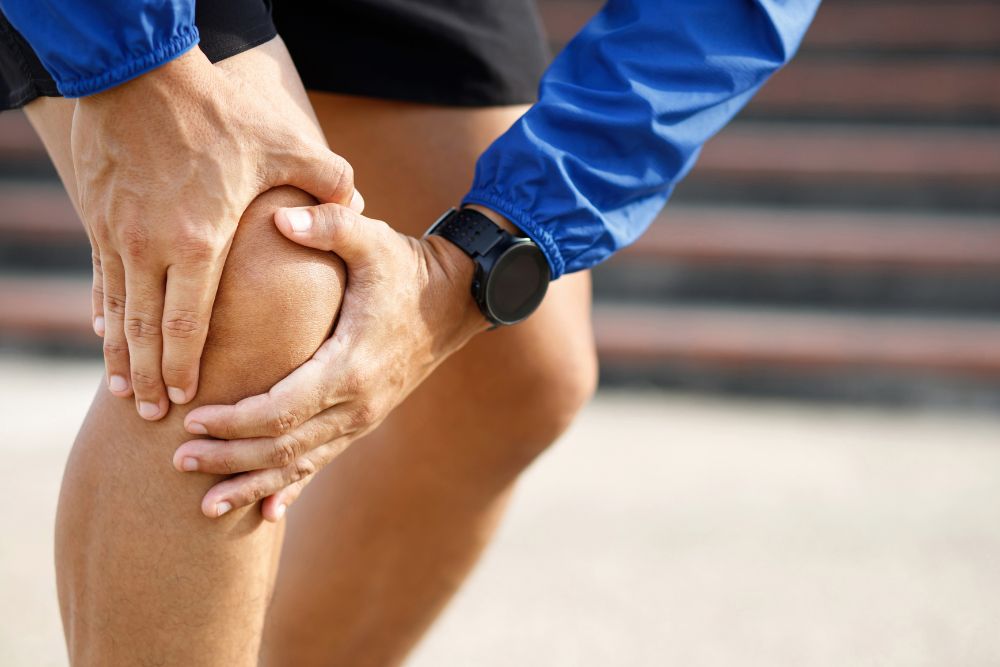Why Are My Joints Popping? When It’s Normal and When It’s Not
August 31st, 2025OrthoHC
Most of us have experienced a little pop, click, or crack when moving our shoulders or knees. Sometimes it feels harmless, while other times, the sound makes us wonder if something is wrong inside the joint. While these noises are often nothing to worry about, there are times when they signal changes that deserve a closer look. Understanding the difference can help you know when to relax and when to get checked by a specialist.
Everyday Pops
In many cases, joint noises are simply part of how the body moves. The shoulder and knee are particularly prone to them because of their range of motion and the number of structures packed into a small space. Common causes of joint popping include:
- Gas bubbles in joint fluid: Inside every joint is synovial fluid, a natural lubricant that helps things move smoothly. Tiny gas bubbles can form in this fluid, and when you shift position or bend the joint, the change in pressure makes those bubbles collapse or burst, resulting in that familiar pop or crack.
- Tendons or ligaments shifting: In the shoulder, tendons can snap gently over bony ridges as you reach overhead or rotate your arm. Similarly, in the knee, ligaments may glide over bone during bending and straightening and make a popping or cracking sound as they do so.
- Age-related changes: As we get older, the tissues around our joints lose elasticity, which can make these movements a little noisier.
If these sounds come and go without discomfort, they’re generally harmless and not a sign of damage.
When Joint Noise May Signal a Problem
The story changes when popping or cracking is accompanied by other symptoms. That’s the body’s way of signaling that something isn’t right with the joint mechanics.
For example, in the shoulder, a repeated click or pop during overhead motion can indicate a rotator cuff tear, where the tendons responsible for stabilizing the joint are damaged. Popping in the shoulder could also point to a labral tear—damage to the rim of cartilage that deepens the shoulder socket. In the knee, a grinding or crunching sound with stiffness may be an early sign of arthritis, as the smooth cartilage that cushions the joint begins to wear away. Or, a sudden pop at the time of injury, followed by swelling or instability, is often linked to a meniscus tear or ligament injury.
What sets these situations apart is not just the sound, but the pattern and presence of additional symptoms. Occasional harmless cracks tend to be painless and irregular. Problematic popping is often frequent, painful, and accompanied by swelling or instability.
Protecting Your Joints
While you can’t stop every click or crack, you can reduce unnecessary stress on your joints. Here are some steps you can take to help prevent joint discomfort:
- Strengthening exercises: Strong muscles around the joint—especially in your shoulders and knees—help support and stabilize it. Try incorporating light-weight or resistance-band exercises that target the shoulders. Exercises that work the quadriceps, hamstrings, and glutes can help with knee support.
- Consistent stretching: Flexibility can reduce tension and friction in the muscles and tissues that surround your joints. Cross-body arm or doorway stretches can help with shoulder mobility. Gentle hamstring, quad, and calf stretches are beneficial to the knee.
- Prioritize proper posture: Poor posture can over-stress both the shoulder and knee joints. Sitting upright, keeping shoulders aligned, and avoiding long hours in fixed positions can significantly reduce strain.
When to See an Orthopedic Specialist
Occasional popping on its own usually isn’t a reason to worry, but when the sounds are frequent, loud, or paired with pain, instability, or swelling, it’s time to see a specialist. That’s where the team at The Orthopedic Health Center comes in. Our orthopedic doctors are skilled at diagnosing subtle joint problems early—before they progress into something more serious. We take a comprehensive approach, starting with non-surgical treatments like therapy, activity modifications, and injections, and turning to minimally invasive surgical options only if they’re truly needed.
At The Orthopedic Health Center, we pride ourselves on personalized, one-on-one care tailored to your goals and lifestyle. If joint popping is starting to affect your comfort or confidence, don’t wait—schedule a visit with our team and take the first step toward moving with ease again.
Appointments available now.
